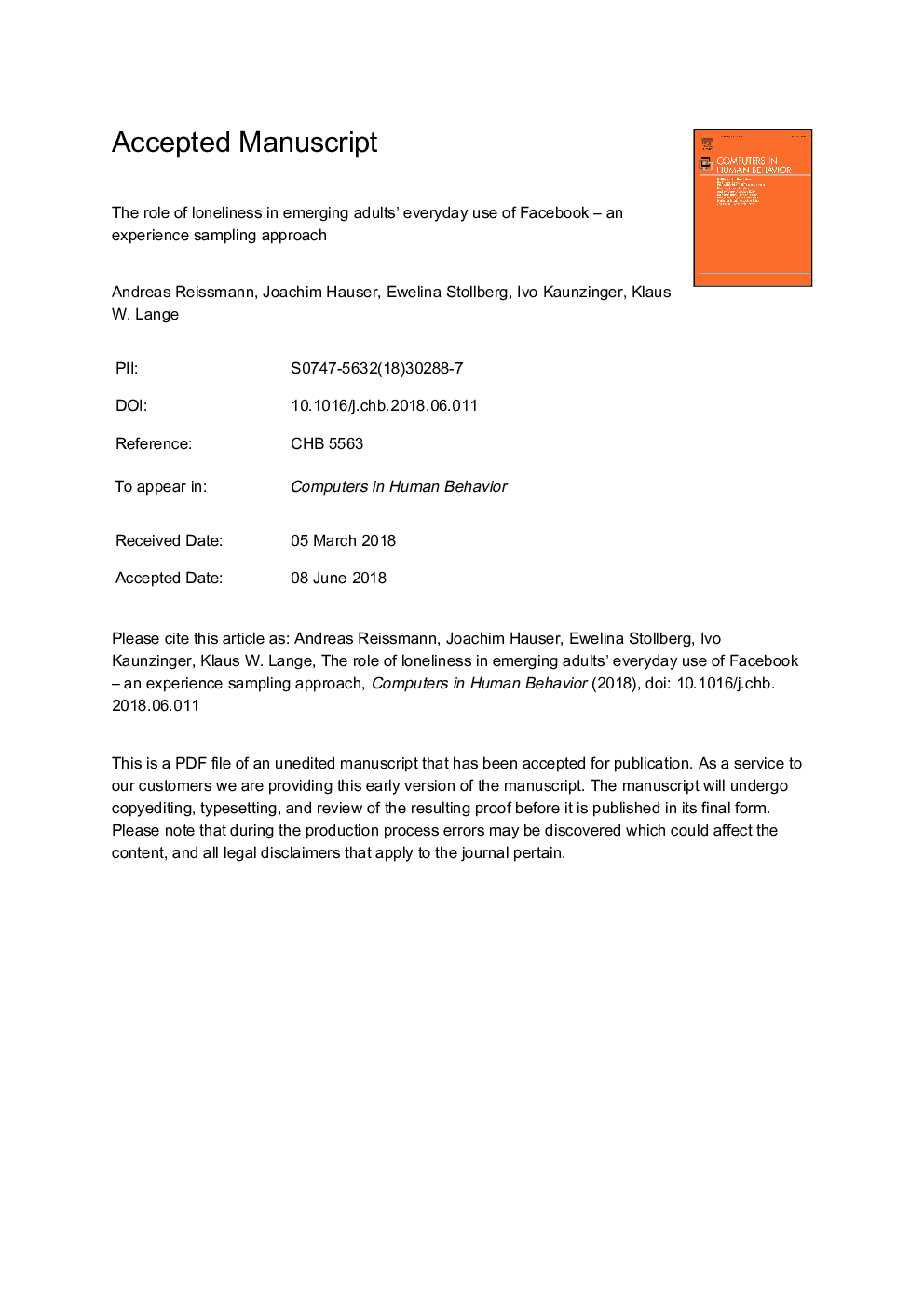| Article ID | Journal | Published Year | Pages | File Type |
|---|---|---|---|---|
| 6835673 | Computers in Human Behavior | 2018 | 52 Pages |
Abstract
Previous empirical evidence has shown that the psychological experience of loneliness is associated with increased levels of media use, indicative of a remedial attempt to cope with the aversive psychological experience. Since social media have been shown to provide users with many different ways of meeting their interpersonal needs, the present study investigates the occurrence of such loneliness-associated uses of the social network site Facebook within the context of everyday life. Adopting an experience sampling methodology (ESM), a sample of 65 participants was recruited from a local university and was followed for a study period of two weeks. Subjects were requested to assess their emotional state and the level of Facebook use several times a day using a fixed interval assessment schedule. Statistical analyses using multilevel analysis indicated that state feelings of loneliness were predictive of a subsequent increase in Facebook use. Moreover, the size of this effect varied across persons and was shown to be highly contingent upon several psychosocial traits, including gender, social insecurity, Facebook addiction and cross-situational levels of (trait) loneliness. These findings of person-dependent, emotion regulatory uses of social media services such as Facebook may be of relevance for understanding both adaptive and maladaptive uses of online technology. Implications and limitations of these findings are discussed and several recommendations for future studies made.
Keywords
Related Topics
Physical Sciences and Engineering
Computer Science
Computer Science Applications
Authors
Andreas Reissmann, Joachim Hauser, Ewelina Stollberg, Ivo Kaunzinger, Klaus W. Lange,
